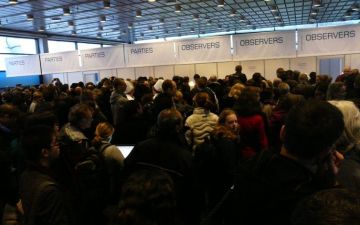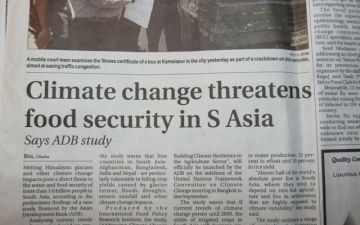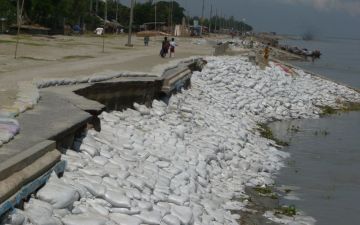In Bangla, "easy like water" translates roughly as "piece of cake." The irony is that in Bangladesh -- with 150 million people in a country the size of Iowa, water poses a relentless threat. With increasingly violent cyclones and accelerating glacier melt upstream, flooding may create 20 million Bangladeshi "climate refugees" by mid-century. India is already building walls to keep them out.
But Mohammed Rezwan, an architect by training, has conjured up the equivalent of environmental Jujitsu, harnessing the power of water to educate and unify the community. His idea is simple and elegant. "330 schools were flooded last year," he says. "So I decided, if the children can't go to school, why can't the school go to them?" With its solar-powered, internet-enabled school boats, his project is bringing education to rural Bangladeshis, including many girls who have never had access to school before.
Elsewhere in the country, the children are not so fortunate. For some, their villages must repeatedly move to evade the encroaching sea, and their families cannot sell the farmland because saline inundation has rendered it worthless. Others have already fled to the urban chaos of Dhaka, where they seek work as rickshaw drivers or brick porters. This documentary is the first film to explore the lives of "the children of climate change."
Rezwan sees Bangladesh's future, and it will float. He has extended the concept to offer a host of other services, from clinics and to adult education in sustainable farming. Plans are in the works for vegetable gardens and entire villages that float. But as the waters continue to rise, can one man make a difference?
Bangladesh has a tiny carbon footprint. It is us – the people of the industrialized world – who are contributing to global warming. And while this story may seem far away now, the oceans are all connected. Their future is ours as well.




